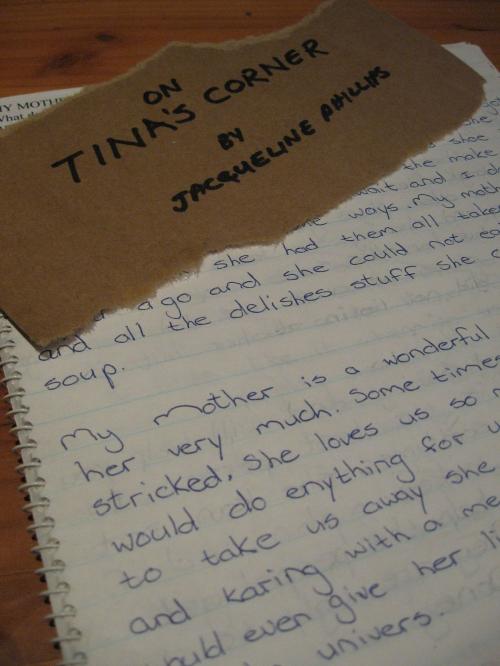| Author: | Jacqueline Phillips | ISBN: | 9781483506913 |
| Publisher: | BookBaby | Publication: | August 24, 2013 |
| Imprint: | Language: | English |
| Author: | Jacqueline Phillips |
| ISBN: | 9781483506913 |
| Publisher: | BookBaby |
| Publication: | August 24, 2013 |
| Imprint: | |
| Language: | English |
This story is set in Johannesburg, South Africa. It takes place over the ten days before Christmas, and as each day begins a new chapter unfolds. It is a detailed look at the life of Tina, a beggar, and her family. Over these ten days the reader is drawn into their life crisis, its climax and partial resolution. It is a non-judgemental study of one particular woman's plight. It is a story about life in South Africa today and also close to my heart - women's lives in South Africa today. I have seen women do whatever it takes to feed and support their children, however great the obstacles, and this has motivated my story. The central character in this story is Tina, an obese white woman who stands on the corner outside Hyde Park Corner, one of the most exclusive shopping centres in Johannesburg, with a banner that reads "No Job. No Money. Children to Feed. Please Help." Her two children sit at her feet while she begs. Tina shares her corner with her destitute sister-in-law Hantie. During the ten days described their lives become totally intertwined. Hantie's life tumbles down into a dark abyss and pulls down together with it the lives of Tina and her family. But the hardest blow to Tina's life is Hantie's ultimate deception. Hantie's struggle for survival entails a terrible betrayl of Tina and her family and Tina is only able to put back together the pieces of her life once she has forgiven Hantie. This then is a story of struggle, deception, forgiveness and redemption. Finally, even though Tina's financial crisis is not resolved, many other aspects of her life fall back into place and the reader knows that her positive approach to life's hardships will in the end be her saving grace. On Tina's Corner is a story set in the Johannesburg we know today. It is a South African story that illustrates and focuses our attention on the plight of the many destitute people who stand begging on busy corners. On Tina's Corner is an important story that forces us, as people from advantaged communities, wherever we are, to see what we so often choose to ignore. Background to this story: Busy intersections in Johannesburg have in recent years become a hubbub of activity. Small businesses of many different kinds thrive at these stops, where a large variety of products ranging from clothes hangers, dustbin bags, toys and fruit to super glue, flowers, newspapers and tennis balls are sold. During the apartheid era the poor white community was cared for by the state by means of legislation reserving certain jobs for whites only. The advantages enjoyed by this community were at the expense of other poor, unskilled labourers of different skin colour. All that has now changed and people who come from this community are finding themselves joining their destitute black contemporaries on the streets - begging for money. Despite all their previous advantages this community failed to thrive. The poor white community is then the contextual focus of the story. Years of drug and alcohol abuse have taken their toll on them generation after generation. Children without aspirations matured into adults who expected to be cared for by an apartheid government simply because of the whiteness of their skins. Today they have to look after themselves, and they sadly have neither the skills nor resources to do so.
This story is set in Johannesburg, South Africa. It takes place over the ten days before Christmas, and as each day begins a new chapter unfolds. It is a detailed look at the life of Tina, a beggar, and her family. Over these ten days the reader is drawn into their life crisis, its climax and partial resolution. It is a non-judgemental study of one particular woman's plight. It is a story about life in South Africa today and also close to my heart - women's lives in South Africa today. I have seen women do whatever it takes to feed and support their children, however great the obstacles, and this has motivated my story. The central character in this story is Tina, an obese white woman who stands on the corner outside Hyde Park Corner, one of the most exclusive shopping centres in Johannesburg, with a banner that reads "No Job. No Money. Children to Feed. Please Help." Her two children sit at her feet while she begs. Tina shares her corner with her destitute sister-in-law Hantie. During the ten days described their lives become totally intertwined. Hantie's life tumbles down into a dark abyss and pulls down together with it the lives of Tina and her family. But the hardest blow to Tina's life is Hantie's ultimate deception. Hantie's struggle for survival entails a terrible betrayl of Tina and her family and Tina is only able to put back together the pieces of her life once she has forgiven Hantie. This then is a story of struggle, deception, forgiveness and redemption. Finally, even though Tina's financial crisis is not resolved, many other aspects of her life fall back into place and the reader knows that her positive approach to life's hardships will in the end be her saving grace. On Tina's Corner is a story set in the Johannesburg we know today. It is a South African story that illustrates and focuses our attention on the plight of the many destitute people who stand begging on busy corners. On Tina's Corner is an important story that forces us, as people from advantaged communities, wherever we are, to see what we so often choose to ignore. Background to this story: Busy intersections in Johannesburg have in recent years become a hubbub of activity. Small businesses of many different kinds thrive at these stops, where a large variety of products ranging from clothes hangers, dustbin bags, toys and fruit to super glue, flowers, newspapers and tennis balls are sold. During the apartheid era the poor white community was cared for by the state by means of legislation reserving certain jobs for whites only. The advantages enjoyed by this community were at the expense of other poor, unskilled labourers of different skin colour. All that has now changed and people who come from this community are finding themselves joining their destitute black contemporaries on the streets - begging for money. Despite all their previous advantages this community failed to thrive. The poor white community is then the contextual focus of the story. Years of drug and alcohol abuse have taken their toll on them generation after generation. Children without aspirations matured into adults who expected to be cared for by an apartheid government simply because of the whiteness of their skins. Today they have to look after themselves, and they sadly have neither the skills nor resources to do so.















